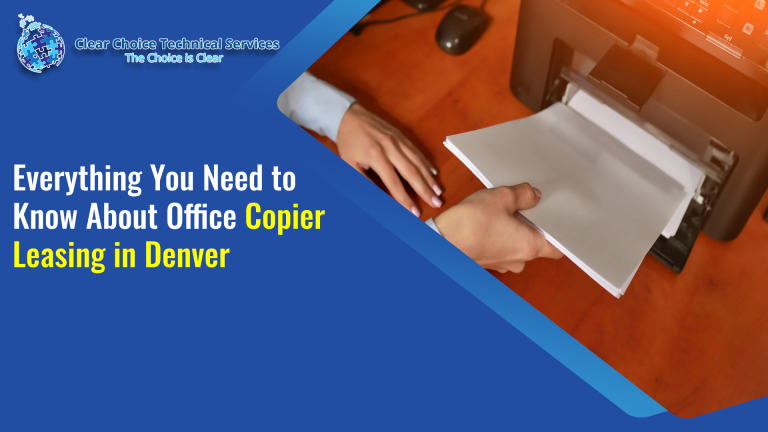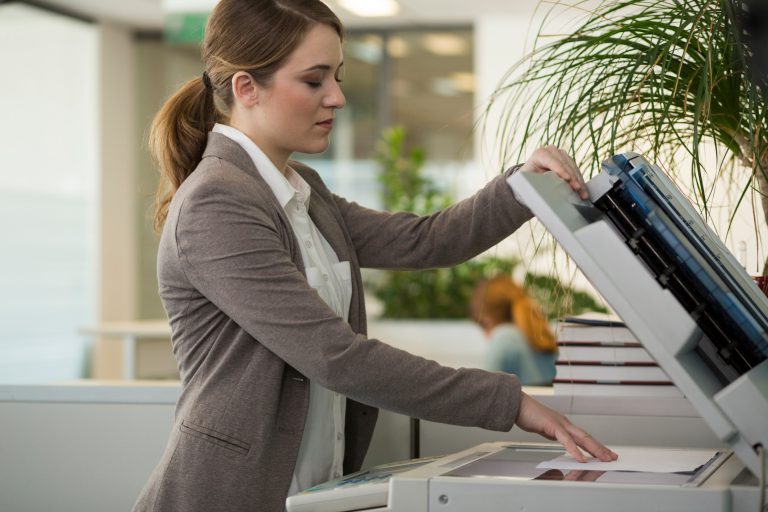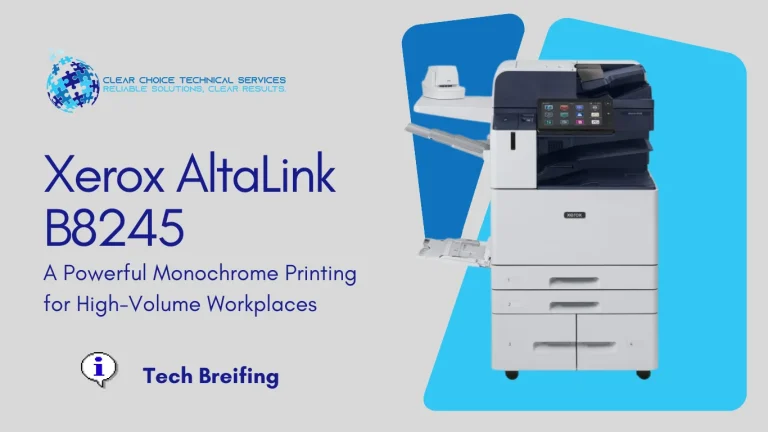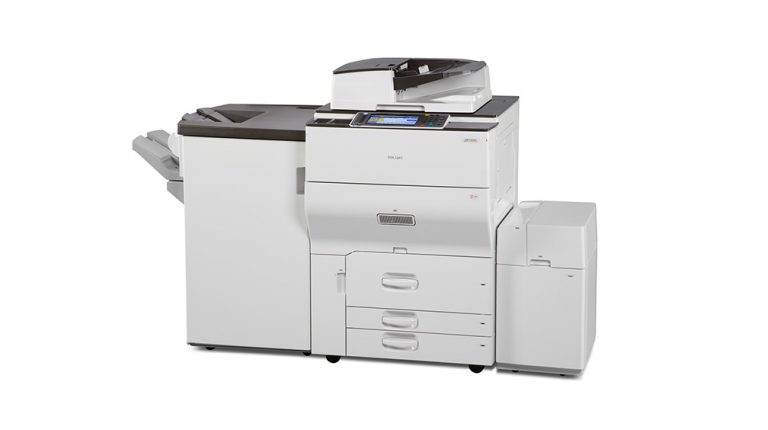At the end of your contract, you will either return the machine or continue to rent it from the dealer or manufacturer. This option can be favourable to organizations who have no interest in owning their machine, but it’s not recommended to continue renting a machine long term.
Like many contracts, service costs will rise as your machine gets older, making a rental option less affordable, in the long term.
Is a leased copier an asset?
Choosing a copy machine lease and being able to replace an older and slower copier more quickly ensures that your business isn’t sinking money into old equipment.
As your copier ages, you’ll not only find yourself tantalized by state-of-the-art features on newer models. You’ll also find yourself frustrated by the decreased efficiency of your older model. In fact, copiers become slower as they age. They also become more expensive, demonstrating higher per-page printing costs over time.
Maintenance costs are another consideration. Lease agreements cover maintenance, including routine upkeep and supplies, like toner, and ongoing service, parts, and labour.
Copier purchase arrangements can include warranties, and you can usually choose to purchase an additional service contract. However, these service contracts are, again, an added cost. They also may include hidden costs if you are required to take the faulty machinery to a regional facility or even send it back to the manufacturer at your expense.
Over time, a copy machine lease also saves you money on taxes. Your monthly lease payments are a pre-tax business expense. This means that they are tax-deductible, and you can deduct the entire payment each month.
In contrast, when you purchase a copier, you’re purchasing a depreciable asset. This means that you can only deduct the depreciation value each year. Even in the first year, this “value” is significantly less than the purchase price (often around 40%) and decreases significantly from there.
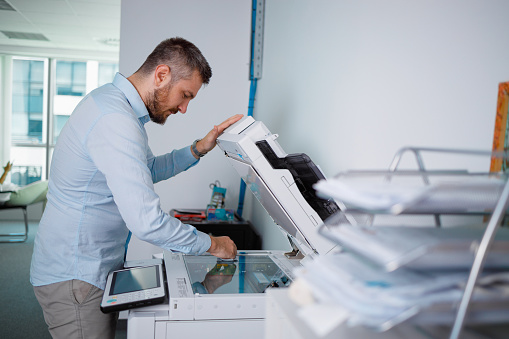
How does a copier lease work?
A copier lease is when a company, instead of purchasing a copier, rents it. The lease payment would include the cost of the copier, plus interest, divided over the term of the lease, usually 36, 48, or 60 months.
There is also a maintenance agreement, sometimes bundled with the lease payment, but usually billed separately. This would typically cover all copier parts, labour to fix the machines, and supplies (toner, not usually staples of paper).
The maintenance usually is computed as a cost per copy/print. Sometimes copier dealers include a fixed number of copies/prints into your total contract price. Don’t be fooled, you are still paying for the copies/prints that are included in your contract.
Additionally, if you fall short or don’t use those copies/prints included in your contract, you are basically paying for services not used. It is best to have a maintenance contract that either bills you only for copies/prints used, or one where you have overage charges (cost per copy fee for copies/prints over contract included ones) ensuring you are using all the copies/prints in your contract.
What Are The Advantages Of Leasing A Printer?
To help you decide which option is right for your business, let’s take a look at the specific advantages and disadvantages of leasing a printer.
- Easy Monthly Payments. Leasing your printer/copier gives you the ability to budget more accurately for the month or year and depending on the structure of the individual contract can offer a pre-determined fixed cost each month. If the machine breaks down there aren’t going to be any budget blowouts or unexpected repair bills to fund.
- Initial Cost Savings. Leasing printers can offer very obvious immediate cost savings which are particularly suitable for recent start-ups, seasonal or small to medium-sized businesses who wish to conserve money. Leasing office equipment is also often popular with larger companies because of the ability to upgrade equipment more frequently and as a way to avoid large amounts of capital being caught up in asset ownership.
- Fixed Monthly Costs. Leasing a printer means you’ll pay for the use of the printer in fixed monthly instalments for the length of the lease contract. At the end of the contract you do not own the printer and it is either returned or you renew the lease and carry on for another contract period. Normally the equipment can be upgraded without penalty during the contract period. The contract can be ended early by buying out the remaining value owed on the contract. You may also decide to opt for a contract that also includes a set number of copies per month.
If you plan to get copiers for your office in Denver, you can buy or lease copiers in Denver. We can give you the option to get the copier that you want. You can contact our local copier leasing services department in your location.
If your Location is around Denver, you may call us at ((303) 416-7100, and our personnel for copier leasing in Denver will assist you. If you are also looking for copier repair services in Denver, you may contact our copier repair personnel at the same number.


